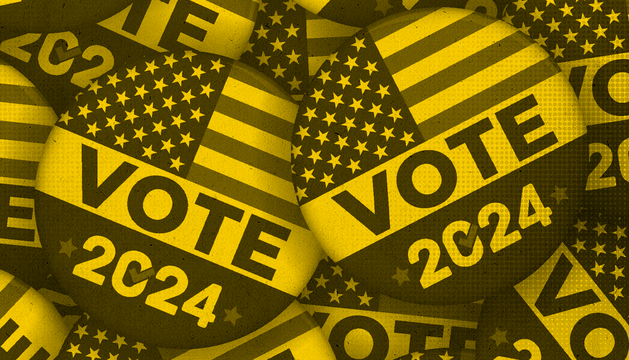Florida: Limits on Voter Eligibility Challenges
This resource details state and federal laws that guard voters against unfounded challenges to their eligibility.
Part of
Written and published in partnership with All Voting is Local
Florida, like most states, allows private individuals to challenge another person’s eligibility to vote. This resource details state and federal laws that govern this process and protect challenged voters. Florida’s voter protections include a requirement that all challenges be in writing and signed under penalty of perjury, and a requirement that challenged voters be allowed to vote a provisional ballot.
Florida law only permits challenges during a 30-day window before and on Election Day.
- Only a registered voter or poll watcher from the same county can challenge a person’s right to vote in that county. 1
- Challenges are prohibited unless they are brought within 30 days of an election or on Election Day. 2
- Challenges must be delivered to the supervisor of elections, or to the clerk or inspector at a polling place. 3
A challenge to a vote-by-mail ballot is different from a challenge to a voter’s eligibility to vote. A challenge to a vote-by-mail ballot can be filed by an elector or a candidate at the county board canvassing meeting, but only on the grounds that there is a defect on the vote-by-mail ballot certificate. These challenges can only be accepted after the ballot is received and before it is opened. 4
Florida law includes multiple accountability measures to deter challenge abuses.
- A voter or poll watcher who challenges another voter must swear and sign a written challenge oath. 5They must file a separate challenge form for each voter challenged. 6
- It is a third-degree felony for a voter or poll watcher to use false information to challenge another voter. 7
- A voter or poll watcher who files a frivolous challenge against another voter is guilty of a separate misdemeanor for each frivolous challenge they file. 8
In addition, any person “who willfully swears or affirms falsely to any oath or affirmation, or willfully procures another person to swear or affirm falsely to an oath or affirmation, in connection with or arising out of voting or elections commits a felony of the third degree . . . “9
A challenged voter has the right to immediate notice of a challenge and the right to cast a provisional ballot.
- A challenged voter has the right to immediately receive notice and a copy of the challenge. 10Upon receiving a sworn challenge during the proper time window, the supervisor of elections must promptly deliver a copy of the challenge to the election board of the challenged voter’s precinct. 11If the voter is a vote-by-mail ballot voter, they have the same right to notice, a copy of the challenge, and an opportunity to present evidence of their eligibility to the supervisor of elections. 12
- A voter whose residency is challenged can update their registration address and vote a regular ballot if they moved within their county, if they moved to a county that uses an electronic poll book at the polling place, or if they are an active uniformed service member or family member. 13
All other challenged voters have the right to vote a provisional ballot. 14The voter must be given written notice and instructions on their right to provide evidence of their eligibility to the supervisor of elections until 5 p.m. on the second day after Election Day. 15
A challenged voter is presumed eligible unless there is sufficient evidence demonstrating they are not entitled to vote.
- The county canvassing board, when deciding whether to count a provisional ballot cast by a challenged voter, must presume the voter is eligible to vote. 16
In deciding whether there is evidence sufficient to overcome the presumption of eligibility, the county canvassing board must review the information in the voter’s provisional ballot certificate and affirmation, any information provided by the supervisor of elections, the challenger’s oath, and any information provided by the challenged voter. 17
Almost no challenge should result in the immediate removal of a voter from the rolls.
The National Voter Registration Act limits when and how voters can be removed from the rolls. Under the act, states and counties are permitted to remove a voter in just five circumstances: if the voter affirms the change; if state law requires, for a criminal conviction or mental incapacity; for the death of the voter; if the voter confirms a change of residence in writing; and based on other evidence of a change of residence, but only after the state sends a notice and the voter both fails to respond and fails to vote in the next two federal general elections. 18 These restrictions apply regardless of whether clerks are conducting their own list maintenance or responding to challenges.
The act also prohibits the “systematic” removal of voters within 90 days of a federal election. 19According to guidance from the U.S. Department of Justice, “This 90-day deadline applies to State list maintenance verification activities such as general mailings and door-to-door canvasses. This deadline also applies to list maintenance programs based on third-party challenges derived from any large, computerized data-matching process.”20
• • •
Voters in Florida have the right to vote free from intimidation under federal and state law. Baseless challenges to a voter’s eligibility can harass and intimidate the voter being challenged, as well as other voters waiting to vote at the polls. More information on the federal and state laws that protect Florida voters from intimidation can be found here.
Endnotes
-
1
Fla. Stat. § 101.111(1)(a).
-
2
Fla. Stat. § 101.111(1)(c).
-
3
Fla. Stat. §§ 101.111(1)(a), (c).
-
4
Fla. Stat. § 101.68 (4).
-
5
Fla. Stat. §§ 101.111(1)(a), (c).
-
6
Florida Division of Elections, Voter Challenges DE Reference Guide 0009, March 20, 2020, 1, https://soe.dos.state.fl.us/pdf/DE%20Guide%200009-Guidelines%20for%20Voter%20Challenges%20202003.pdf (update pending as of June 3, 2024, https://soe.dos.state.fl.us).
-
7
Fla. Stat. § 104.0615(3)(a).
-
8
Fla. Stat. § 101.111(2).
-
9
Fla. Stat. § 104.011 (1)(emphasis added).
-
10
Fla. Stat. § 101.111(1)(b).
-
11
Fla. Stat. § 101.111(c).
-
12
FL Division of Elections, Voter Challenges Guide, 1.
-
13
Id.
-
14
Fla. Stat. §§ 101.111(1)(b), (c); FL Division of Elections, Florida Voter Guide, 2024 Election Cycle, November 2023, 21, https://files.floridados.gov/media/707256/final-voterregvotingguide-eng-2024-election-cycle-20231110.pdf.
-
15
Fla. Stat. § 101.048(1); FL Division of Elections, Voter Challenges Guide, 1, https://soe.dos.state.fl.us/pdf/DE%20Guide%200009-Guidelines%20for%20Voter%20Challenges%20202003.pdf.
-
16
FL Division of Elections, Voter Challenges Guide, 1.
-
17
Fla. Stat. § 101.048(2)(a); FL Division of Elections, Voter Challenges Guide, 1.
-
18
52 U.S.C. § 20507(a)(3), (d).
-
19
52 U.S.C. § 20507(c)(2)(a).
-
20
U.S Department of Justice, Voter Registration List Maintenance: Guidance under Section 8 of the National Voter Registration Act, 52 U.S.C. § 20507, 4, September 2024, https://www.justice.gov/crt/media/1366561/dl.
More from the Limits on Voter Eligibility Challenges series
-
Georgia: Limits on Voter Eligibility Challenges
This resource details state and federal laws that guard voters against unfounded challenges to their eligibility. -
Michigan: Limits on Voter Eligibility Challenges
This resource details state and federal laws that guard voters against unfounded challenges to their eligibility. -
Nevada: Limits on Voter Eligibility Challenges
This resource details state and federal laws that guard voters against unfounded challenges to their eligibility.

